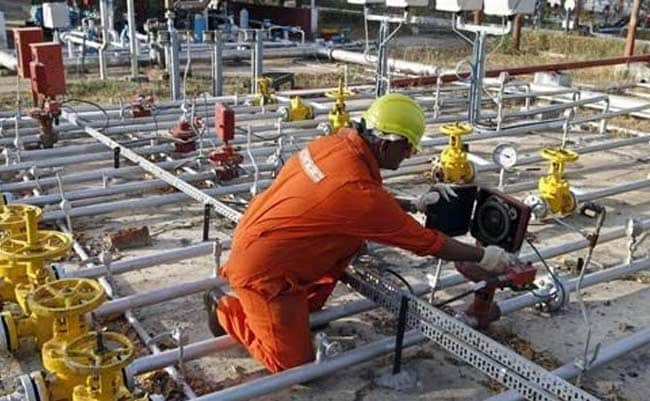
The Union Cabinet has decided to raise gas prices by about a third to $5.61 per million British thermal units (mmBtu), Finance Minister Arun Jaitley said on Saturday, a move that seeks to make production more economical and boost domestic supply.
Here is your 10-point cheat-sheet to this big story:
The new pricing will come into effect from November 1 this year. Currently the bulk of domestic gas is sold at $4.2/mBtu.
The higher price will attract investment but the quantum of rise will not hurt consumers, Mr Jaitley said at a press conference.
The hike is smaller than had been considered by the previous Congress-led UPA government last year, based on a formula linking the prices of locally-produced gas to global benchmarks that could have doubled prices. Mr Jaitley noted that the Rangarajan committee had then suggested a price of $8.4 per mmbtu.
A hike will benefit top producers like Reliance Industries and the state-run Oil and Natural Gas Corp (ONGC).
Oil producers have wanted new rates because the cost of exploring new reserves - many of which are in deep water - is more than the current price, leaving them reluctant to take the risk.
In August, the government had set up a four-member panel of secretaries from different ministries to work out a new gas pricing mechanism. The quartet of top-ranking bureaucrats from the finance, power, oil and fertiliser ministries consulted with all stake-holders.
In June, the BJP-led Central government had deferred a decision on gas pricing to end-September saying the complex issue needed more discussion.
A price increase was to come into effect just days before India started voting in the national election. But the Election Commission requested a deferral.
India is a large importer of energy. Its net energy imports amounted to 6.3 per cent of gross domestic product in the last fiscal year that ended in March.
Demand for gas in India far outstrips domestic supply, but the government has kept prices below global market levels for producers of fertiliser and electricity, deterring investment in domestic exploration and production.

